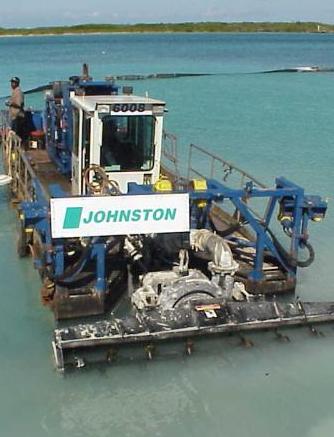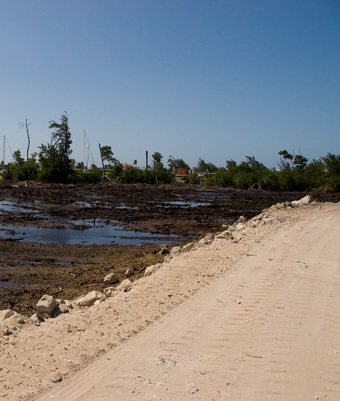Archive for November, 2010

Canada’s NDP calls for tax haven clamp down
 (Toronto Sun): The Canadian opposition party the NDP is calling on the government to get tough on tax cheats. The party says some corporations and wealthy Canadians avoid paying billions in taxes each year by burying the money in offshore tax havens, which is unfair to average Canadians who have to pick up the slack. NDP Leader Jack Layton accused Prime Minister Stephen Harper Tuesday of being lax with tax evaders, despite all the government’s rhetoric about getting tough on crime. "They claim to want to be tough on crime, well come on. Let’s get with it with the billionaires and those corporations that are milking the Canadian taxpayer," Layton said.
(Toronto Sun): The Canadian opposition party the NDP is calling on the government to get tough on tax cheats. The party says some corporations and wealthy Canadians avoid paying billions in taxes each year by burying the money in offshore tax havens, which is unfair to average Canadians who have to pick up the slack. NDP Leader Jack Layton accused Prime Minister Stephen Harper Tuesday of being lax with tax evaders, despite all the government’s rhetoric about getting tough on crime. "They claim to want to be tough on crime, well come on. Let’s get with it with the billionaires and those corporations that are milking the Canadian taxpayer," Layton said.
"Mr. Harper cannot keep standing by while the wealthy tax cheats and the biggest corporations that get involved in this essentially take tax dollars out of the pockets of hard-working Canadians. It’s not right." According to the NDP’s figures, Canadians have $80 billion invested in Bermuda, Barbados, and the Cayman Islands — many times those countries’ GDP.
"Each tax dollar that’s hidden in Bermuda is a dollar that someone else must pay, or it’s a dollar that cannot be invested in public services," Layton said, lamenting Harper’s cuts to the Canada Revenue Agency’s enforcement branch.

Local liquidator reveals cause of Hadsphaltic demise
 (CNS): Chris Johnson, who was appointed one of the joint liquidators, will be examining the roll that the directors of Oxford Ventures Ltd, once owned by the UK Conservative peer and billionaire Lord Ashcroft, played in the demise of local construction firm Hadsphaltic. The company which went into liquidation in July of this year had been a successful contractor in the Cayman Islands for more than four decades. However,Johnson believes that it could have collapsed because other firms in the Oxford group owed the company millions of dollars which they could never have paid, in particular Johnston International Limited in the Turks and Caicos Islands.
(CNS): Chris Johnson, who was appointed one of the joint liquidators, will be examining the roll that the directors of Oxford Ventures Ltd, once owned by the UK Conservative peer and billionaire Lord Ashcroft, played in the demise of local construction firm Hadsphaltic. The company which went into liquidation in July of this year had been a successful contractor in the Cayman Islands for more than four decades. However,Johnson believes that it could have collapsed because other firms in the Oxford group owed the company millions of dollars which they could never have paid, in particular Johnston International Limited in the Turks and Caicos Islands.
Go to CNS Business to read this and other business stores and to comment.

TCI debt downfall of Hadsphaltic
 (CNS): The demise of local construction company Hadsphaltic was down to the financial woes of its parent company Oxford Ventures Ltd, which was propping up failing businesses in the Turks and Caicos Islands. Chris Johnson, the joint liquidator for Hadsphaltic who has now been named one of the joint liquidators for Oxford, said that the real reason why the firm went into liquidation was because of the heavy loses incurred by Johnston International Limited in TCI, which owed money to Hadsphaltic, and which, in the end, brought Oxford down as well. Johnson said he and his joint liquidator will be investigating why companies within the complex web of holdings across the Caribbean were continuing to trade even while they were incurring losses which could have made them insolvent.
(CNS): The demise of local construction company Hadsphaltic was down to the financial woes of its parent company Oxford Ventures Ltd, which was propping up failing businesses in the Turks and Caicos Islands. Chris Johnson, the joint liquidator for Hadsphaltic who has now been named one of the joint liquidators for Oxford, said that the real reason why the firm went into liquidation was because of the heavy loses incurred by Johnston International Limited in TCI, which owed money to Hadsphaltic, and which, in the end, brought Oxford down as well. Johnson said he and his joint liquidator will be investigating why companies within the complex web of holdings across the Caribbean were continuing to trade even while they were incurring losses which could have made them insolvent.
Johnson told CNS on Tuesday that he wanted to take a look at the conduct of the directors within the group of companies, once owned by Lord Ashcroft, and establish why money was being pushed into companies that may not have been viable at the expense of others.
“Hadsphaltic went into liquidation largely because Johnston International Limited owed it $5 million which it could not repay,’” he said, adding that while the firm was incurring massive losses the directors allowed the firm to continue trading, incurring more debt.
“In March 2006 Oxford Ventures Ltd, the parent company in the BVI, was worth $17 million; it is now worth nothing,” the Cayman based liquidator stated. “By far the largest loss in the group was the $20 million lost by JIL, which drained the top company.”
He said that it appeared the directors had felt the need to support the loss making entities at the expense of Hadsphaltic, which was penalised by the decisions those directors made.
News that the local construction company, which had been building in the Cayman islands for more than four decades, came in July this year when it was part way through the construction of the new $4.5 million MRCU hanger at the airport, only yards away from where the firm had constructed its first project some 44 years ago.
The contractor set up shop in the Cayman Islands in 1966 to work on the airport runway project. It became one of the country’s leading construction companies and built anumber of schools, three of the islands’ main hotels, the port building and Cayman National on Elgin Avenue.

Cancun’s vanishing mangroves hold climate promise
 (Reuters): The famous Mexican beach resort, which will next week host international climate change talks, was itself born from the destruction of a potent resource to fight global warming. Thick mangrove forests lined the canals and waterways here before developers dredged the land to make way for the upscale hotels that now draw several million tourists every year. In the 40 years since Cancun was founded, countless acres of mangrove forests up and down Mexico’s Caribbean Coast have been lost — and the destruction continues. Now many scientists say that mangrove forests can help slow climate change, and are desperate to save them. (Photo Dennie Warren Jr)
(Reuters): The famous Mexican beach resort, which will next week host international climate change talks, was itself born from the destruction of a potent resource to fight global warming. Thick mangrove forests lined the canals and waterways here before developers dredged the land to make way for the upscale hotels that now draw several million tourists every year. In the 40 years since Cancun was founded, countless acres of mangrove forests up and down Mexico’s Caribbean Coast have been lost — and the destruction continues. Now many scientists say that mangrove forests can help slow climate change, and are desperate to save them. (Photo Dennie Warren Jr)
"We still have a lot to learn but the potential is huge for mangroves," said Gail Chmura, a climate change researcher at McGill University in Montreal who studies how much carbon is stored in these knobby, tidal forests.As they process sunlight into food, mangroves suck an uncommon amount of industrial carbon out of the atmosphere and bury it deep within their underground network of roots.
As nations looks desperately for "carbon sinks" that can capture and store carbon linked to climate change, mangroves are increasingly seen as a resource worth saving.

Mac meets queen at Windsor on UK trip
 (CNS): The Cayman Islands premier, along with other leaders of the UK’s overseas territories, was invited to meet Queen Elizabeth II on Tuesday 16 November at Windsor Castle. McKeeva Bush, who was in the UK for the annual Overseas Territories Consultative Council (OTCC), was one of six territory leaders who were formally presented to the queen. According to a release from Cayman’s London office, the premier also enjoyed a more personal exchange with the world’s most famous royal in which he congratulated her on the engagement of her grandson Prince William to Kate Middleton, which was announced on the day of the visit. (Photo – Press Association)
(CNS): The Cayman Islands premier, along with other leaders of the UK’s overseas territories, was invited to meet Queen Elizabeth II on Tuesday 16 November at Windsor Castle. McKeeva Bush, who was in the UK for the annual Overseas Territories Consultative Council (OTCC), was one of six territory leaders who were formally presented to the queen. According to a release from Cayman’s London office, the premier also enjoyed a more personal exchange with the world’s most famous royal in which he congratulated her on the engagement of her grandson Prince William to Kate Middleton, which was announced on the day of the visit. (Photo – Press Association)
Premier Bush was delighted that after the queen was introduced to all of the leaders, she made a point to return to Bush for a further conversation. He said it was an honour to meet “Her Majesty again” and that she mentioned her trip to the Cayman Islands in 1994, recalling a visit to Evelyn Theresa Powery of West Bay who at the time was age 94.
After Bush offered congratulations on behalf of the people of the Cayman Islands over the royal engagement, the queen sent her best wishes to her subjects in the Cayman Islands.

Bajun’s face tough tax hikes from new minister
 (BBC Caribbean): Barbadians have been given one of the toughest national budgets in years. New Finance Minister Chris Sinckler announced tax increases designed to bring more than US$100 million in revenue as the government tries to curb a galloping public deficit and debt. The island’s tourism-dependent economy has struggled to recover from the global economic downturn. Most of the new revenue – $62m – is expected to come from an 18-month increase in the Value Added Tax from 15% to 17.5%. Bus fares have been raised – by 30% – for the first time in almost two decades, while another notable hike is in the excise tax on gasoline by 50%.
(BBC Caribbean): Barbadians have been given one of the toughest national budgets in years. New Finance Minister Chris Sinckler announced tax increases designed to bring more than US$100 million in revenue as the government tries to curb a galloping public deficit and debt. The island’s tourism-dependent economy has struggled to recover from the global economic downturn. Most of the new revenue – $62m – is expected to come from an 18-month increase in the Value Added Tax from 15% to 17.5%. Bus fares have been raised – by 30% – for the first time in almost two decades, while another notable hike is in the excise tax on gasoline by 50%.

Long term climate predictions need to improve
 (CNS): Better predictions about the climate change and its likely impact on the regional economy was a key topic of discussion at a recent weather talking shop held in the Cayman Islands. Coordinating Director of the Caribbean Meteorological Organisation (CMO) Tyrone Sutherland explained experts were seeking ways for Caribbean meteorological organizations to provide appropriate and media-friendly climate prediction services to governments and the public. He added that while scientists around the world still debated the effects of climate change on the frequency and intensityof storms, there was regional consensus that climate change and variability had already changed rainfall patterns, increasing flood and drought conditions across the Caribbean.
(CNS): Better predictions about the climate change and its likely impact on the regional economy was a key topic of discussion at a recent weather talking shop held in the Cayman Islands. Coordinating Director of the Caribbean Meteorological Organisation (CMO) Tyrone Sutherland explained experts were seeking ways for Caribbean meteorological organizations to provide appropriate and media-friendly climate prediction services to governments and the public. He added that while scientists around the world still debated the effects of climate change on the frequency and intensityof storms, there was regional consensus that climate change and variability had already changed rainfall patterns, increasing flood and drought conditions across the Caribbean.
“Meteorological services must become an integral part of our strategic planning because ignoring the effects of climate change could have dire economic consequences,” he said at the 50th session of the Caribbean Meteorological Council.
WMO’s Secretary-General, Michel Jarraud attended Monday’s official opening to share how the Caribbean can be part of a global framework for climate services. Data gathered by the Mainstreaming Adaptation to Climate Change Project (a UK-funded programme) indicates that surface temperatures in the Arctic have increased by 5Ëš Celsius, causing global sea levels to rise 20 to 30 cm in the 20th century.
Expanding on this, Cayman’s National Weather Service Director General, Fred Sambula revealed that a group of scientists that recently visited as part of a UK Overseas Territories climate change assessment team found surface temperatures in the Caribbean are also rising.
“They further noted that rainfall frequency is declining and patterns changing; this means heavier rainfall over shorter periods of time, causing more flooding,” he said adding that the potential effects of climate change and variability cut across sectors to include areas such as agriculture, health, education, tourism, and construction.
“Warmer temperatures inevitably mean increased energy costs and similarly, a lack of moderate rainfall may affect water resources, and increased flooding may cause more water- and mosquito-borne illnesses, impacting the health sector and requiring additional resources,” Sambula warned.
In the agricultural sector, temperature changes and possible seasonal shifts might lead to changes in planting and harvesting and even crop viability.
Many small island states have economies based on tourism which would not be spared the ravages of climate change,, Sambula said. “Rising sea levels and heavier storm surges may damage beaches, for example, combined with other effects such as coral bleaching. Warmer temperatures may also affect the comfort level of visitors, leading to an expanded demand for investment in this sector.”
He explained that the shift towards climate services represents an effort to assist governments to improve governance through scientific data that will support forward planning and sustainable national development.
“When we look at the potential fallout, meteorologists must move from merely giving short-term weather forecasts, to researching and predicting futureclimate impacts. We must help governments stay ahead of the game,” Sambula stated.

Legislators return to seats
 (CNS): Following the recent sitting of the Legislative Assembly at the beginning of the month where government brought no legislative changes at all, the House re-opens again Wednesday with high expectations for a number of new bills as well as amendments. The recent debate that government must pass legislation that enshrines the constitutional requirement of providing 21 days notice for all laws before they are brought to the LA for passage saw government’s legislative plans delayed during the last sitting. Tomorrow however law makers are expected to get back to the business of making and amending legislation the premier is also expected to deliver his government’s strategic policy statement (SPS) on Friday. (Photo Dennie Warren Jr)
(CNS): Following the recent sitting of the Legislative Assembly at the beginning of the month where government brought no legislative changes at all, the House re-opens again Wednesday with high expectations for a number of new bills as well as amendments. The recent debate that government must pass legislation that enshrines the constitutional requirement of providing 21 days notice for all laws before they are brought to the LA for passage saw government’s legislative plans delayed during the last sitting. Tomorrow however law makers are expected to get back to the business of making and amending legislation the premier is also expected to deliver his government’s strategic policy statement (SPS) on Friday. (Photo Dennie Warren Jr)
The SPS is when government outlines its financial goals and plans for the next financial year and will give the country a better view on how likely government is to have delivered on its goal to eliminate the deficit by 2012/2013 financial year. It also present an opportunity for government to update the people on the current situation with the various propose infrastructure projects which it hopes to deliver before the end of this election term.
Aside from the new law to enshrine the 21 day consultation period for bills government is also expected to bring other legislative changes which failed to make the paper earlier in the meeting. These include changes regarding tax concessions, witness protection, district councils and the controversial dormant accounts bill. There is no sign that either the national conservation law or changes to the traffic law will come in this next sitting.
The Legislative Assembly doors open to the public at 10am.

UK imposes new permanent immigration quota
 (Miami Herald): Britain will impose a tough annual limit on the number of non-Europeans allowed to work in the UK and slash visas for overseas students as it seeks to dramatically reduce immigration, the government said Tuesday.Home Secretary Theresa May told the House of Commons that the number of non-EU nationals permitted to work in the U.K. from April 2011 will be capped at about 22,000 – a reduction of about one-fifth from 2009. But thousands of people who are allowed to work in Britain on intracompany transfers aren’t included in those figures – or under the new quota.
(Miami Herald): Britain will impose a tough annual limit on the number of non-Europeans allowed to work in the UK and slash visas for overseas students as it seeks to dramatically reduce immigration, the government said Tuesday.Home Secretary Theresa May told the House of Commons that the number of non-EU nationals permitted to work in the U.K. from April 2011 will be capped at about 22,000 – a reduction of about one-fifth from 2009. But thousands of people who are allowed to work in Britain on intracompany transfers aren’t included in those figures – or under the new quota.

Daily aspirin dose ‘for everyone over 45’
 (Daily Telegraph): Evidence is building that the benefits for many healthy middle-aged and older people “far outweigh” the side effects, according to the academics. In particular, individuals at higher risk from the country’s two biggest killers would be helped by taking the painkiller as a preventive medicine, they added. The experts were speaking at the Royal Society of Medicine a month after research from Oxford University published in The Lancet showed that taking 75mg of aspirin daily for five years reduces the risk of getting bowel cancer by a quarter, and deaths from the disease by a third. A 75mg dose is a quarter of the standard over-the-counter pill.
(Daily Telegraph): Evidence is building that the benefits for many healthy middle-aged and older people “far outweigh” the side effects, according to the academics. In particular, individuals at higher risk from the country’s two biggest killers would be helped by taking the painkiller as a preventive medicine, they added. The experts were speaking at the Royal Society of Medicine a month after research from Oxford University published in The Lancet showed that taking 75mg of aspirin daily for five years reduces the risk of getting bowel cancer by a quarter, and deaths from the disease by a third. A 75mg dose is a quarter of the standard over-the-counter pill.
